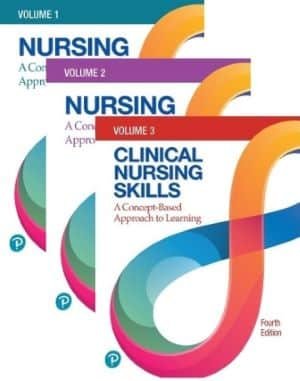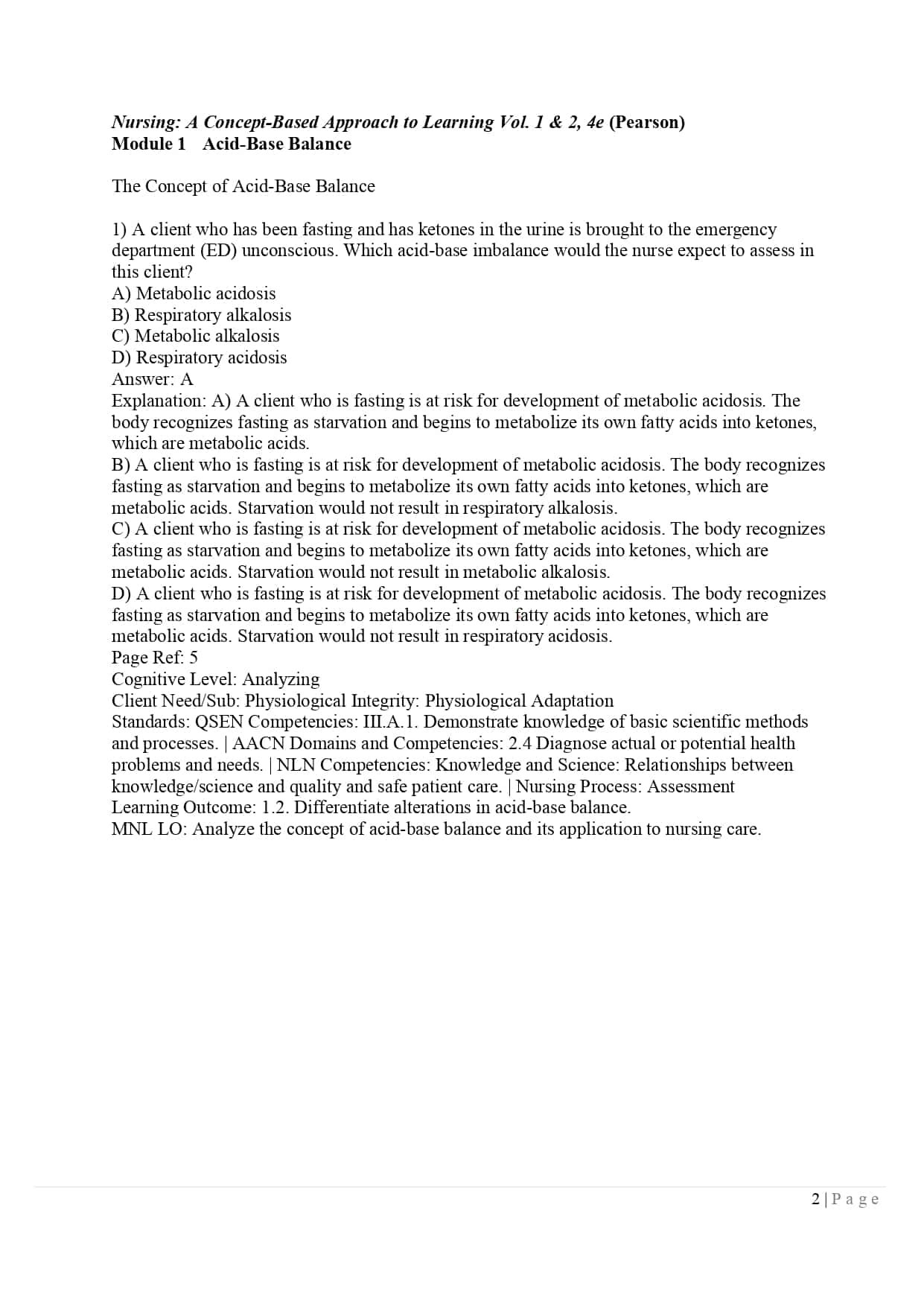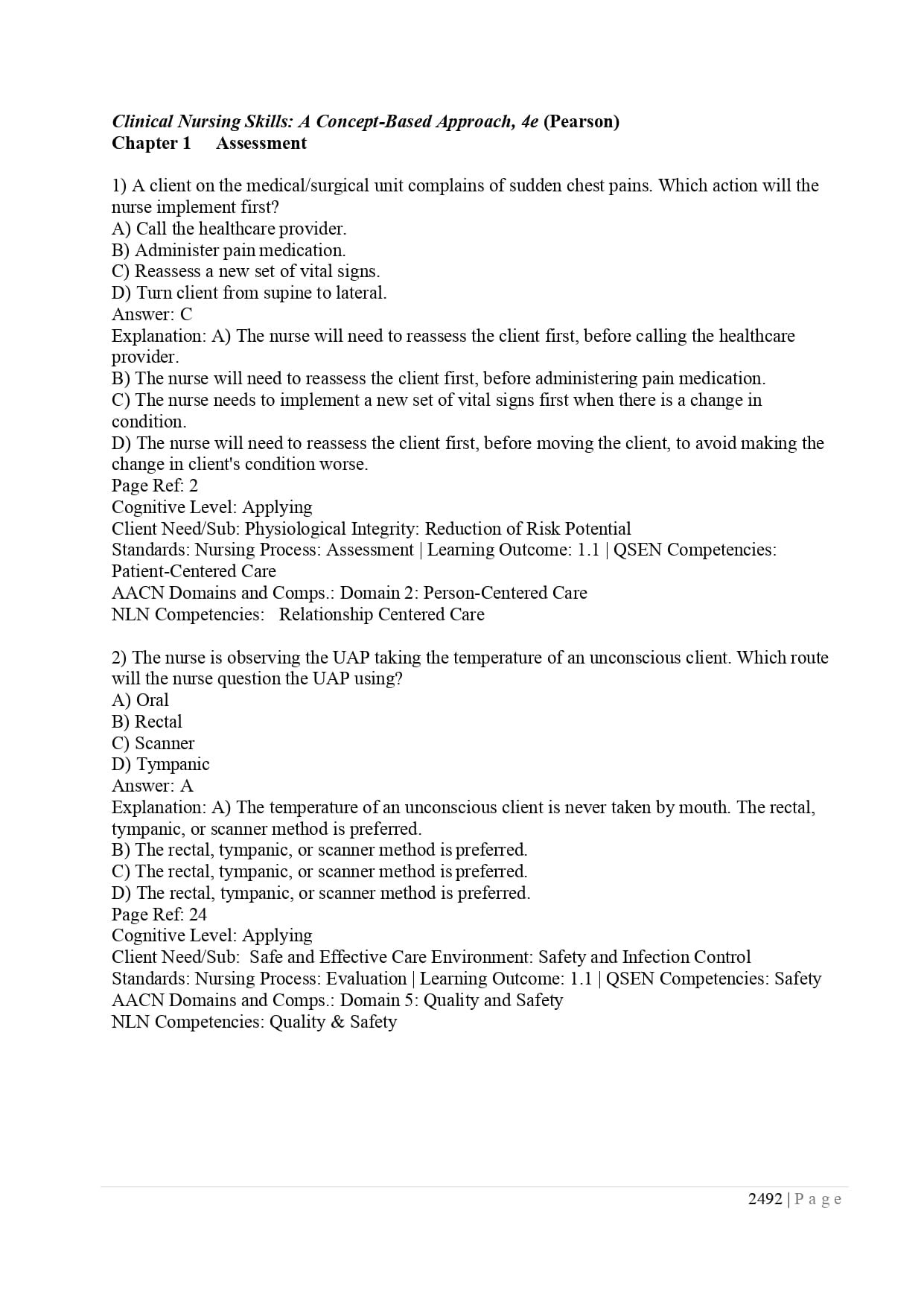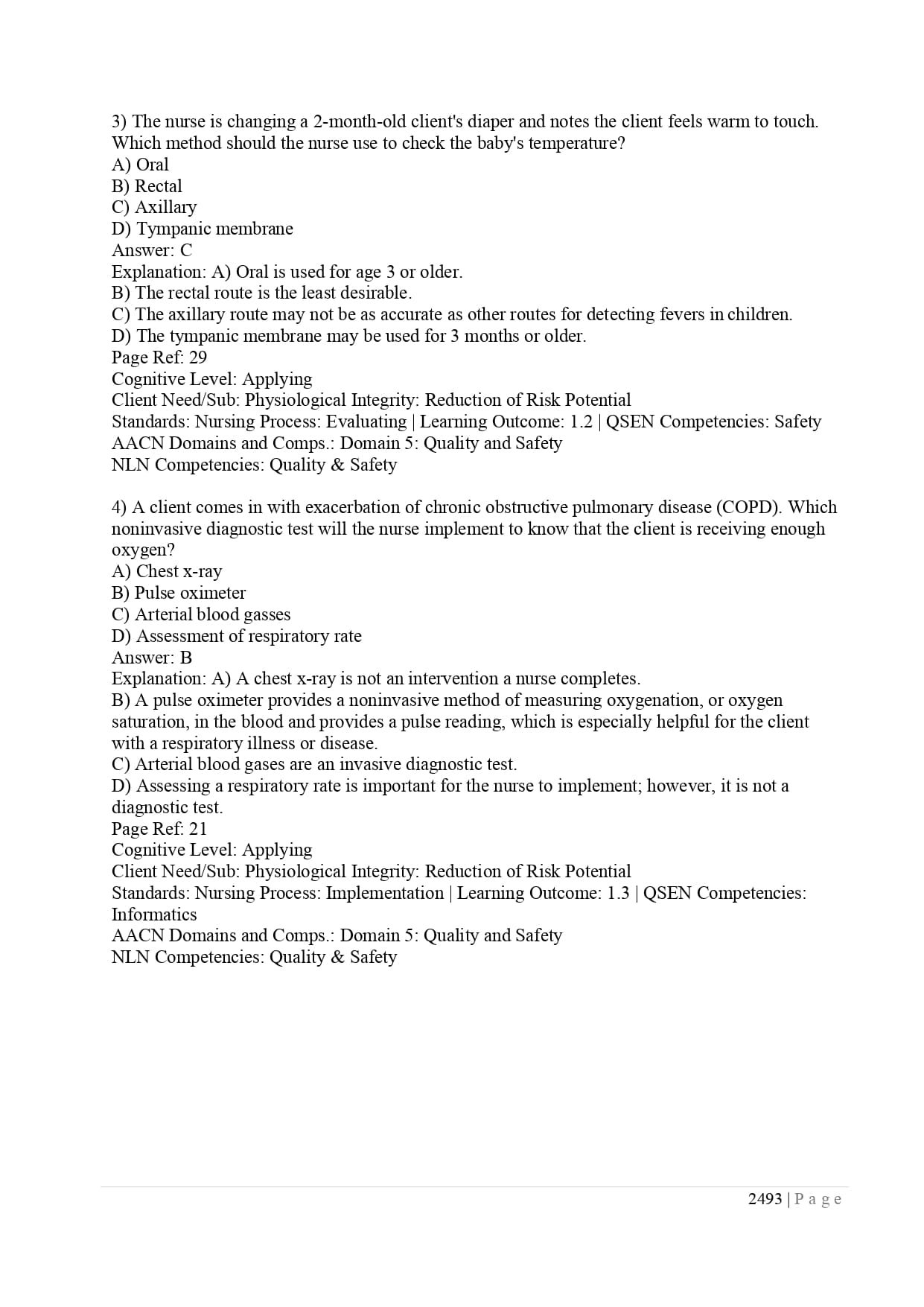Nursing: A Concept-Based Approach to Learning 4th Edition Test Bank
$26.00 Original price was: $26.00.$23.00Current price is: $23.00.
Instant PDF download of the Test Bank for Clinical Nursing Skills: A Concept-Based Approach (4th Edition, Pearson Education). Complete set — Vol I, Vol II & Vol III. Includes NCLEX-style nursing questions with answers & rationales, organized by concept domains: biophysical, psychosocial, reproduction, nursing, and healthcare.

Description
by Pearson Education. This complete set includes Volume I, Volume II, and Volume III, organized by biophysical, psychosocial, nursing, and healthcare domains.
The test bank provides NCLEX-style practice questions with verified answers and rationales, helping students apply evidence-based skills, strengthen concept-based learning, and prepare for NCLEX, ATI, and HESI exams. Delivered as an instant PDF download, accessible on any device.
Why Choose Clinical Nursing Skills: A Concept-Based Approach 4th Edition Test Bank?
- Edition-specific: Aligned with the 4th Edition by Pearson Education
- Concept-based organization: Covers acid-base balance, cellular regulation, cognition, safety, ethics, quality improvement, and more
- Exam prep ready: NCLEX, ATI, HESI-style questions with detailed rationales
- Complete volumes included: Volume I (Biophysical), Volume II (Psychosocial & Nursing Domains), Volume III (Skills Modules)
- Instant Access: Universal PDF file works on mobile, tablet, and desktop
Table of Contents Coverage
📖 Click to Expand Full Module List (Vol I, II & III)
Volume I — Biophysical Modules
- Acid-Base Balance
- Cellular Regulation
- Comfort
- Digestion
- Elimination
- Fluids and Electrolytes
- Health, Wellness, Illness, and Injury
- Immunity
- Infection
- Inflammation
- Intracranial Regulation
- Metabolism
- Mobility
- Nutrition
- Oxygenation
- Perfusion
- Perioperative Care
- Sensory Perception
- Sexuality
- Thermoregulation
- Tissue Integrity
Volume II — Psychosocial, Reproduction, Nursing & Healthcare Domains
- Addiction
- Cognition
- Culture and Diversity
- Development
- Family
- Grief and Loss
- Mood and Affect
- Self
- Spirituality
- Stress and Coping
- Trauma
Part III: Reproduction Module
- Reproduction
Part IV: Nursing Domain
- Assessment
- Caring Interventions
- Clinical Decision Making
- Collaboration
- Communication
- Managing Care
- Professionalism
- Teaching and Learning
Part V: Healthcare Domain
- Accountability
- Advocacy
- Ethics
- Evidence-Based Practice
- Healthcare Systems
- Health Policy
- Informatics
- Legal Issues
- Quality Improvement
- Safety
Volume III — Skills Modules
- Assessment
- Caring Interventions
- Comfort
- Elimination
- Fluids and Electrolytes
- Infection
- Intracranial Regulation
- Metabolism
- Mobility
- Nutrition
- Oxygenation
- Perfusion
- Perioperative Care
- Reproduction
- Safety
- Tissue Integrity
Sample Questions
1) A client who has been fasting and has ketones in the urine is brought to the emergency department (ED) unconscious. Which acid-base imbalance would the nurse expect to assess in this client?
A) Metabolic acidosis
B) Respiratory alkalosis
C) Metabolic alkalosis
D) Respiratory acidosis
Answer: A
Explanation: A) A client who is fasting is at risk for development of metabolic acidosis. The body recognizes fasting as starvation and begins to metabolize its own fatty acids into ketones, which are metabolic acids.
Page Ref: 5 | Cognitive Level: Analyzing | Nursing Process: Assessment
2) The nurse is caring for a client in the emergency department. Which factors will the nurse
identify that increase the client’s risk for metabolic acidosis? Select all that apply.
A) Abdominal fistulas
B) Chronic obstructive pulmonary disease
C) Pneumonia
D) Chronic renal failure
E) Hypovolemic shock
Answer: A, D, E
Explanation: Metabolic acidosis often develops during other conditions such as abdominal fistulas, chronic renal failure, or hypovolemic shock leading to lactic acidosis.
Page Ref: 5-6 | Cognitive Level: Applying | Nursing Process: Assessment
FAQs — Clinical Nursing Skills: A Concept-Based Approach (4th Edition)
Does this test bank include all three volumes (Vol I, II & III)?
Yes. This package provides the complete Clinical Nursing Skills: A Concept-Based Approach 4th Edition test bank — including Volume I (Biophysical Modules), Volume II (Psychosocial, Nursing & Healthcare Domains), and Volume III (Skills Modules).
Are the questions NCLEX-style with answers and rationales?
Yes. Every question mirrors NCLEX, ATI, and HESI exam styles. Verified answers and rationales are included to explain key nursing concepts such as acid-base balance, infection, perfusion, and safety.
Which nursing concepts and modules are covered?
The test bank covers all 51+ concept modules across biophysical, psychosocial, reproduction, nursing, and healthcare domains. Topics include fluid/electrolytes, immunity, addiction, reproduction, clinical decision-making, ethics, health policy, informatics, quality improvement, and more.
How do I receive the test bank after purchase?
You’ll receive instant access after secure checkout. A direct PDF download link will appear on the confirmation page, and you’ll also get a copy in your email and account dashboard. The file opens on iOS, Android, Windows, and macOS devices.
Download & Access
- Instant PDF download (Vol I, II, III included)
- Universal file works on phone, tablet, desktop
- Concept-based NCLEX prep, ATI, HESI practice
Related products
-
Sale!

Test bank for Stanhope and Lancaster’s Community Health Nursing in Canada, 4th Edition
0 - 0 reviews$26.00Original price was: $26.00.$23.00Current price is: $23.00. Add to cart -
Sale!

Principles of Anatomy and Physiology 16th Edition Test Bank
0 - 0 reviews$26.00Original price was: $26.00.$18.00Current price is: $18.00. Add to cart -
Sale!

Test Bank for Foundations of Maternal-Newborn and Women’s Health Nursing, 8th Edition
0 - 0 reviews$26.00Original price was: $26.00.$23.00Current price is: $23.00. Add to cart -
Sale!

Test Bank for Discovering the Life Span, 5th Edition by Robert S. Feldman
0 - 0 reviews$26.00Original price was: $26.00.$23.00Current price is: $23.00. Add to cart







